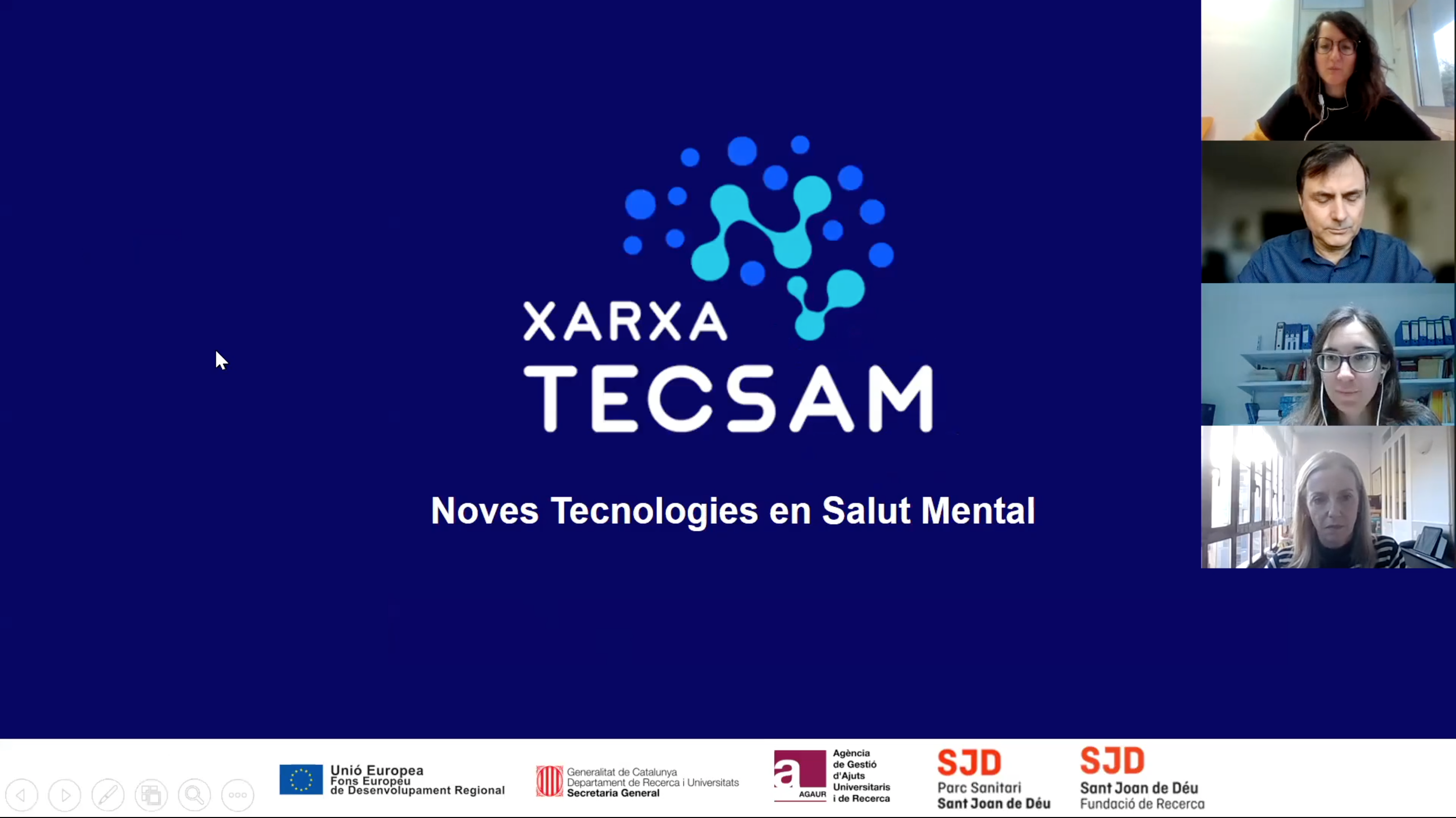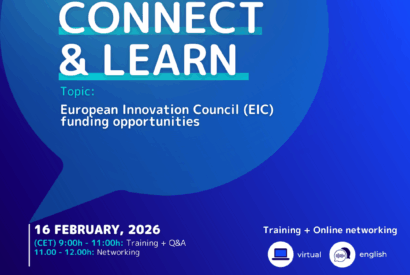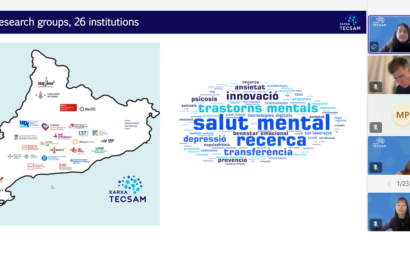[B&L IV Video]: Focus on the final user, quantify the value of the proposal and find the market: keys to define a successful business model
Jesús Purroy, Director of Inveniam, a molecular biologist and entrepreneur, has shared his knowledge about transfer to the market and society of mental health research during the day "Business models from mental health research".

Jesús Purroy, Director of Inveniam, a molecular biologist and entrepreneur, has shared his knowledge about transfer to the market and society of mental health research during the meeting “Business Models from mental health research”. It is the IV Breakfast&Learn, organised by the TECSAM Network, which has been attended by about 40 people.
During the meeting, Purroy has revealed four key concepts in order to define a successful business model:
Firstly, it has pointed out the importance of focusing the value proposal on some of the actors involved in the world of health: user/patient, therapist, carer, pr writer, payer.
Furthermore, this value proposal must either improve quality of life or reduce the impact of a disease or treatment, either directly for the person concerned or for other actors involved (‘reduce pain’ or ‘gain’, in Purroy’s words).
This improvement or reduction of a negative impact must, according to Purroy, be quantitatively measurable, and if possible in economic terms better. However, it is often complex to define the economic value of a knowledge or application in health, and that is why there is often talk of value as an improvement in quality of life.
Finally, Purroy mentioned the need to find a person or entity willing to pay for this value, because if there is no business, we cannot talk about a business model. In this respect, the speaker pointed out that it is important that solutions are closely linked to the first-person perception of the most important problems, since in this way it is easier to ensure that there will be a market share willing to compromise and value transformed research into a business model.
Purroy has also explained that, to start exploiting research results, it is not necessary to start with a business plan or the creation of a new company, but on many occasions it can start by offering services or products from the same institution. An example would be to share the knowledge of the group, externalize it in consulting format.
During the meeting, the debate on how to improve the transfer of solutions to the public sector has also been opened, as well as the need for an internal or external figure within the team who is an expert in business or can act as a translator between business language and science language. It has also highlighted the need for the youngest members of research groups to have at least basic notions as regards transfer. As a result of a question from the public, there has also been talk of whether a business model can be generated from tourism and focused on mental health.
Both Jesús Purroy and the coordination team Network TECSAM have been made available to assistants for advice and resolution of doubts related to the transfer and enhancement of knowledge through business models.
You can see the IV Breakfast&Learn here again:
About the Breakfast&Learn
The Breakfast&Learn is a formative initiative dedicated to innovation, valorization and transfer with a special focus on mental health and technology, led by the TECSAM network with the collaboration of the Catalan mental health cluster, Cluster Salut Mental Catalunya (CSMC). These open meetings are expected to be a monthly space where knowledge is shared and synergies and networking are generated, where the speakers will be guests with expertise in the sector, including administration, research, the private sector, as well as users and families.
The meetings will focus on three major thematic areas: Tools for bringing society and research closer together (innovation, marketing, contact with the private sector, business models, spin offs, empowerment of affected and user people…), tools for protecting research results (intellectual protection, patents, other protection models…), and tools for doing research with clinical research (ethical regulatory aspects, medical devices, digital tools, software…). Also, the member groups of the Network can participate as expert speakers or participants at round tables.
In the upcoming weeks, the TECSAM network will confirm the final timetable for these meetings.

